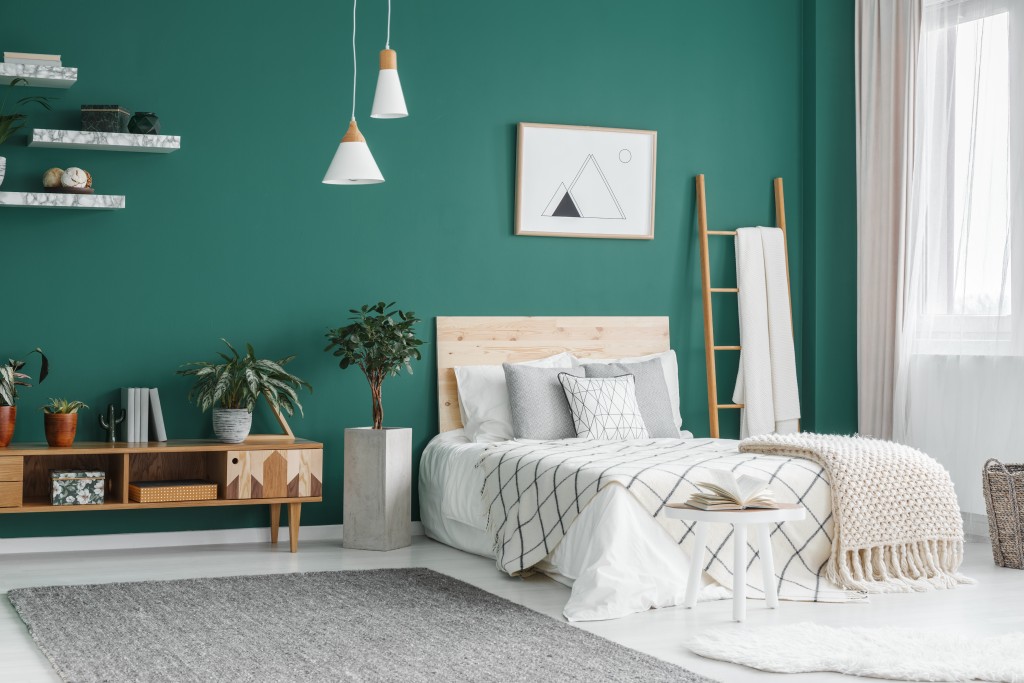According to The Neighbor 2020–2021 American Migration Report, among the respondents who are moving to a new residence in 2021, half are going to a bigger place. When asked what they want from a new abode, 48 percent want more outdoor space, 42 percent want more kitchen space, 40 percent want more storage space, 31 percent want more garage space, 28 percent want more space to work from home, 20 percent want more space for exercise equipment, and 13 percent want more space for remote learning.
Not everyone can afford to buy or build a new and bigger house, though. According to Fortune.com, the median price of existing homes rose by 16 percent in the last 12 months, from $270,400 to $313,000. Shortages in lumber and copper also increased new home construction costs.
Clear Clutter to Make Space
For many people, there is no choice but to stay where they are. You can still make the most of the space you are living in to make it more suited to your well-being. Feeling cramped and doing nothing about it will lead to stress that can affect your emotional and physical health.
Getting rid of clutter will clear up a good amount of space. Check your cabinets and closets because a lot of unnecessary things are hiding there. Take old newspapers and magazines, empty boxes, empty bottles, and other recyclables to a recycling center. For security purposes, shred old files before you throw them away. Bring broken appliances, gadgets, and their batteries, cords, and accessories to an electronic recycling center. Once you have freed up space in your storage, you can put away things that are important to keep but need to be out of sight.
Make sure your pantry does not have expired food items. Throw these away before you make a mistake and consume them. Move all items nearing expiry to the front for use as soon as possible.
Do a thorough audit of all your personal belongings and eliminate clothes, shoes, and bags that you did not use for the past year. You only need a capsule wardrobe and one pair of shoes for each type of use and season. Keep only one bag for each kind of use, as well. Donate the extras that you have.
Downsize and Rearrange Furniture and Decor
Choose home décor that does not take up additional floor space but adds beauty to your interiors, like paintings and lighting fixtures. Also, do away with those that eat up shelf and tabletop space that you can use instead for books and current necessities.
Replace oversized furniture with smaller ones that are just enough for your intended usage. Choose those that you can fold up and move to the sides of a room when not in use to open floor space, or those that provide additional storage space. There are beds, tables, and sofas that have drawers underneath.

Plants are important additions to a home because they bring in nature and filter carbon dioxide and toxins from the air. Indoor plants and planters can also consume a lot of space, though. Opt instead for hanging plants in corners of rooms or beside windows.
Paint the rooms a light neutral color and the ceiling an even lighter color to create the illusion of a wider and higher space. Paint any built-in cabinets the same color as the walls to make them blend in. If you have one bare wall, install a large mirror to visually double the size of the room instantly.
Create Extra Rooms
If you do not have extra rooms to transform into a home office and a home classroom, fit the desks into existing bedrooms. If the bedrooms are too small, replace the beds with a loft-type one and place the work desk and shelves underneath. Make sure there is enough headspace above and below.
If two people who share a bedroom are both working from home, create another workstation above the living room. Pay attention to headspace here, as well.
You can use a foldable divider to provide a professional-looking background behind the work chair and study chair. Make sure the chairs are ergonomically designed but streamlined.
Live in the Space You Have
The pandemic has created new needs in the home and the house that was adequate before can feel too small now. If you do not have the option of moving to a larger place, you must learn how to live comfortably in the area you now have.
Maximizing a limited space is a matter of mindset. Do away with what you do not need and keep the essentials so that fewer things are taking up room. Find multiple uses of the furniture and vertical use of the space. Customize everything to your current needs and you will find that your existing abode is well-suited to your requirements and your happiness after all.
